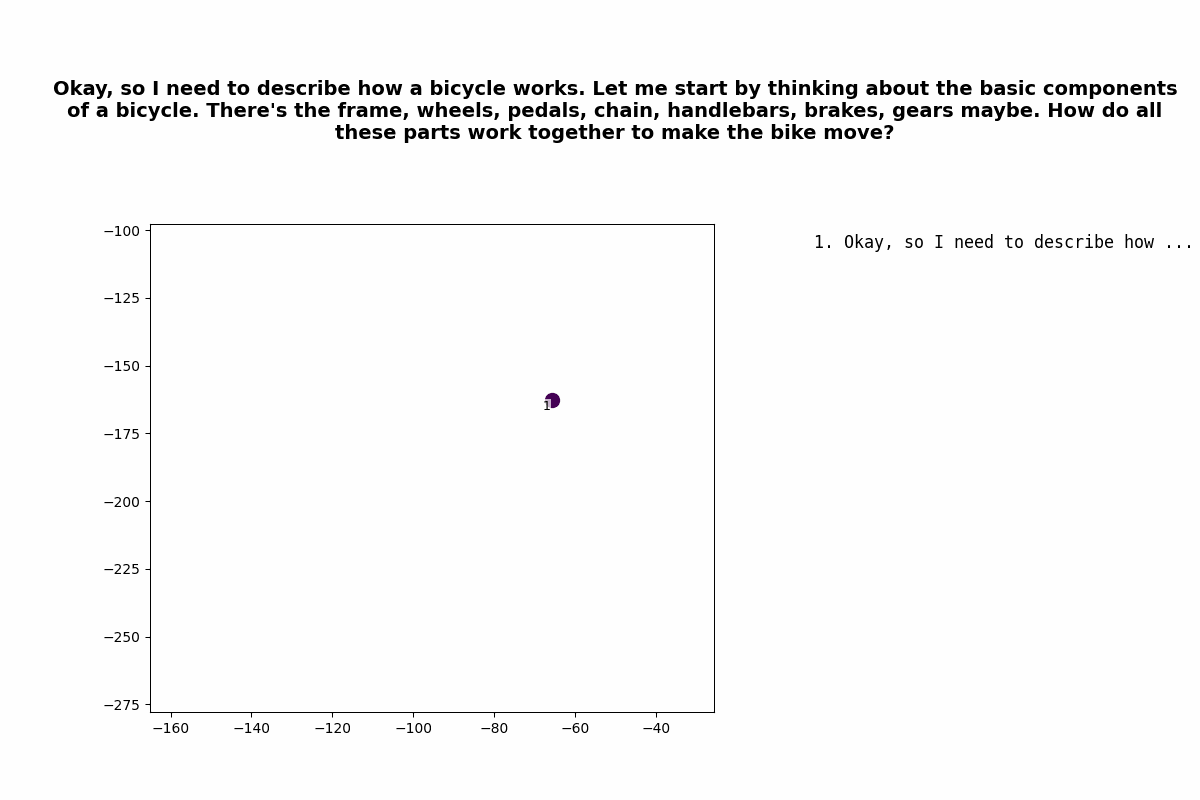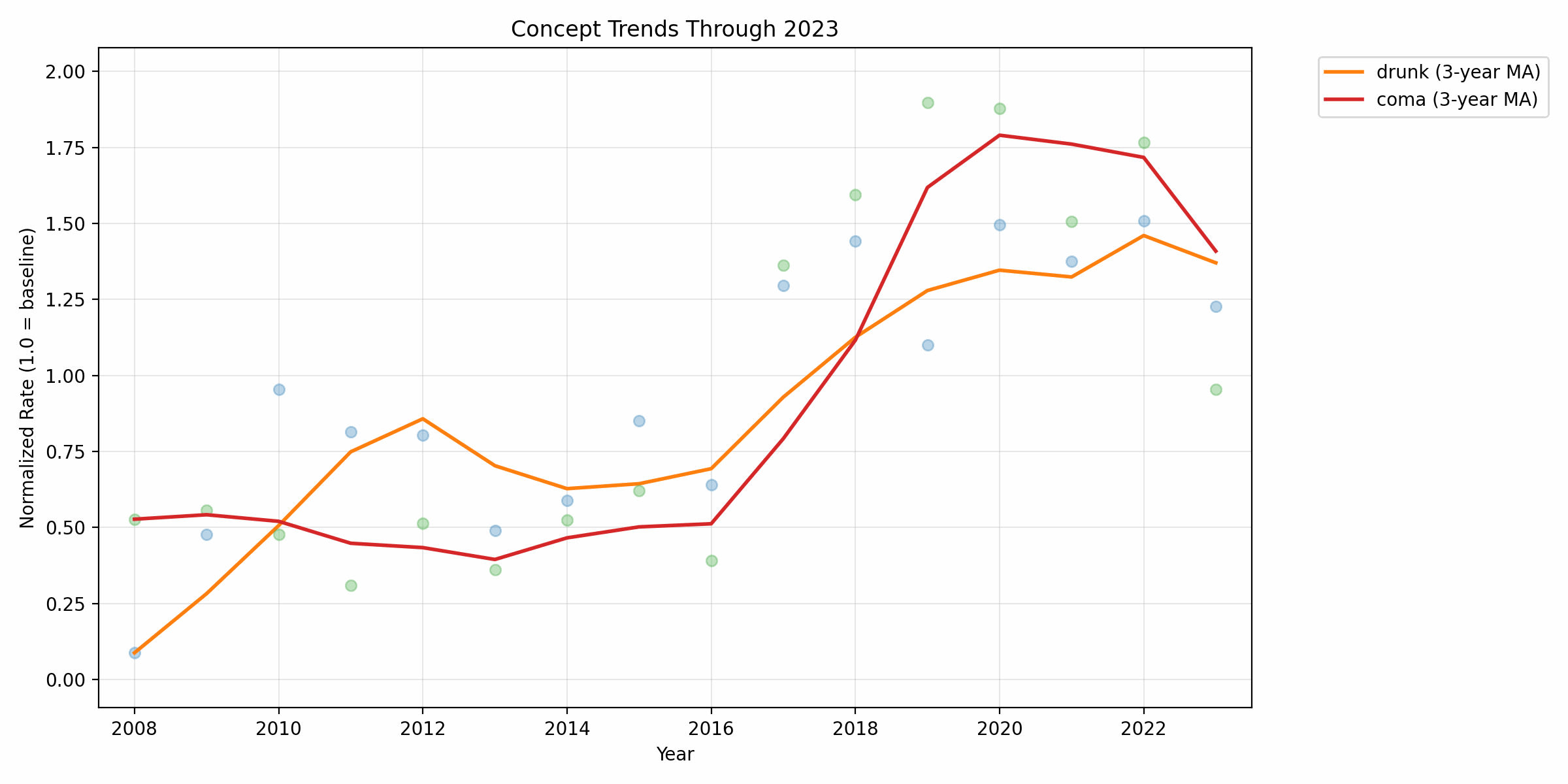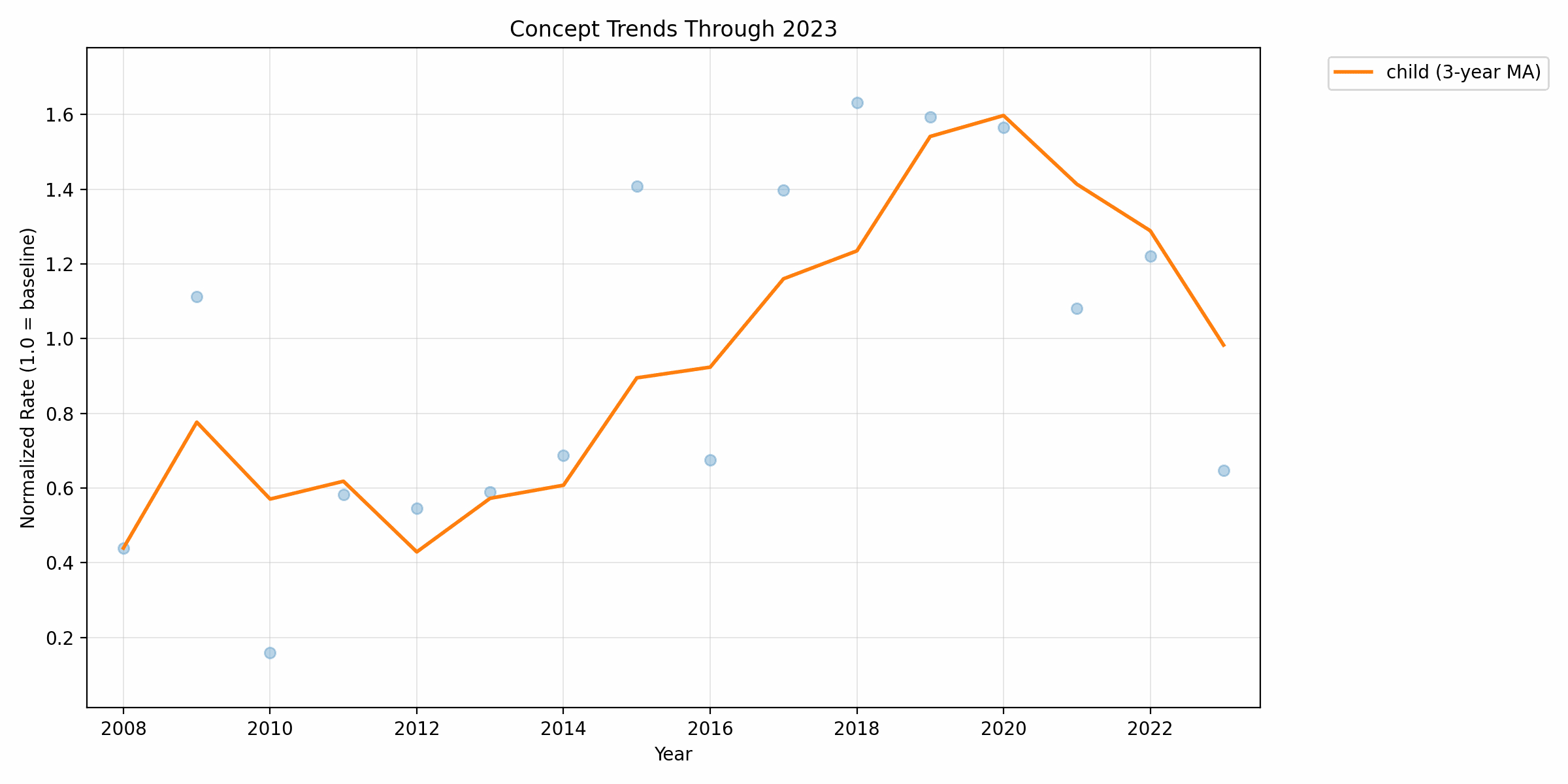Semen and Semantics: Understanding Porn with Language Embeddings
Summary Porn content has gotten more extreme over time. Here's the average title for the first full year of Pornhub's existence, 2008: * "Hot blonde girl gets fucked" and here's the average title for 2023: * "FAMILYXXX - "I Cant Resist My Stepsis Big Juicy Ass" (Mila Monet)" Why did this change happen? We can understand porn's progression by converting titles to language embeddings. I downloaded Internet Archive snapshots of "pornhub.com" from 2008 - 2023 and analyzed the embeddings of the titles on the main page. I found three distinct eras of titling: 2008-2009, 2010-2016, 2017-present. The current trend, since 2017, is characterized mainly by an emphasis on incest and other sexual violence. Titles are generally representative of actual video content, and provide a reasonable heuristic for measuring actual content change, though some SEO effects exist. The conclusion is a slightly ominous one: we are close to semantic bedrock with respect to sexual violence. Porn titles cannot become more sexually violent in their descriptions, because we lack the vocabulary. Data and Methods Download the repo and run "pip install" to install dependencies. Pre-downloaded data is located in the "snapshots" folder. Pornhub data goes back to 2007, but analysis begins in 2008, when the format became more consistent. We have a folder for each month of the year, and a roughly weekly cadence of snapshots. For each date, there are two files, e.g.: "20080606.html", the raw HTML file, and "20080606.json", which contains the parsed video titles. The JSON files is an array of dictionaries like so: { "title": "Quickie on the car?", "url": "/view_video.php?viewkey=9aeff09be64077906196", "views": "39183", "duration": "7:39\n \t7 hours ago", "embedding": ... } where the "embedding" field is the "title" value converted by OpenAI's "text-embedding-3-large". The URL format changes slightly over time. From 4416 available snapshots, we end up with 772 weekly snapshots. Typically, we'll


